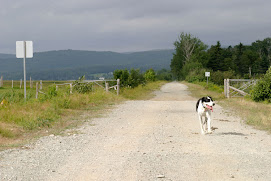The Right View: What is social justice?
Mon Dec 29, 2008, 05:05 AM EST
CAMBRIDGE - When we were looking at schools for my daughter, one prospective teacher related how she had organized her kindergarten class into a protest march against the city workers who had been instructed to clear brush at a nearby park. The tiny environmentalists marched around in a circle with “Save the Brush” signs. The teacher confided that it was perhaps necessary to trim the park’s brush periodically, but, she declared, that’s not what’s important. She had to fulfill the social justice mission at her school by training children to fight injustice.
At the time I was unfamiliar with the concept of social justice, and I left the school in a state of confusion. Rather than being unimportant, isn’t it essential that we teach our children to evaluate what they might be protesting before indiscriminately joining the tail end of any march that comes along?
We did not choose that kindergarten, but avoiding social justice advocacy in Cambridge turned out to be more difficult. Among many Cambridge institutions that advertise their commitment to social justice are the Cambridge Peace Commission, King Open School, Cambridge Friends School, Shady Hill School, the Social Justice Works! program at CRLS, and the First Parish Cambridge UU church. There’s even “mathematics for social justice” in Cambridge schools.
It’s none of my business if people want to join a political church, so long as I’m not forced to attend anti-Bush sermons on Sunday morning. (On this issue I’m for separation of church and state). But school attendance isn’t optional. Children shouldn’t be subjected to social justice sermons either.
An apologist might argue, “We are simply teaching children to fight injustice to establish a just society.” There are several things wrong with this depiction.
For one, social justice is a left-wing political goal, not a universal value. Its umbrella shelters a grab bag of causes, which include “economic justice,” equal rights for a variety of victim groups and, recently, environmentalism. These causes all require an expansion of government power that is anathema to small government conservatives.
Consider the idea of “economic justice,” i.e., “spreading the wealth around.” A conservative sees not justice but the injustice of taking money out of Joe the Plumber’s wallet to pay for more ineffective government.
Or consider the issue of equality. Conservatives believe in equality of opportunity, as expressed by Jefferson’s “All men are created equal.” But if the sole cause of inequality is injustice, government must step in to guarantee that all persons, regardless of race, gender, ability, class or sexual orientation end up equal in life.
Conservatives fear that such social engineering places inordinate power in the hands of the State. In Friedrich Hayek’s words, the “pursuit of social justice will contribute to the erosion of personal freedom and encourage the advent of totalitarianism”—probably not in the form of the Nazi jackboot but with the smothering embrace of the nanny state.
Secondly, schools play a role in preparing our children for their future careers. The world was certainly made a better place by social justice activist Martin Luther King Jr. But I cringe at the idea of a generation of college graduates who think that fighting injustice is the highest career goal, who take Michelle Obama’s advice—“Don’t go into corporate America,” who find science and math irrelevant, who can’t place World War II in the correct century, who can’t compose a coherent English paragraph. We need Martin Luther Kings, but we also need selfish entrepreneurs who make money developing new energy sources. We need plumbers and electricians who take pride in their work. We need kids who study for their biology APs rather than volunteer at the soup kitchen, who might one day discover an AIDS vaccine. The unintentional actions of well-educated citizens can do more good than an army of well-meaning do-gooders.
Finally, teaching social justice has the unfortunate side effect of teaching our children that America is an unjust place, so they have something to fight against. Thus American history becomes a catalogue of injustice: slavery, Indian genocide, Japanese internment. For example, rather than admit that we are moving rapidly away from our racist past, social justice advocates focus on new injustices. Slavery may be gone, but racial spotlighting remains. Save the Brush!
skip to main |
skip to sidebar


Culture War Dispatches
from a Progressive People's Republic
Daisy takes a walk

"I detest the notion of a new dawn in which homo sapiens would live in harmony. The hope this Utopia engenders has justified the bloodiest exterminations in history." --Francois Bizet, Khmer Rouge survivor
"Of all tyrannies, a tyranny sincerely exercised for the good of its victims may be the most oppressive." --C.S. Lewis
Daisy
